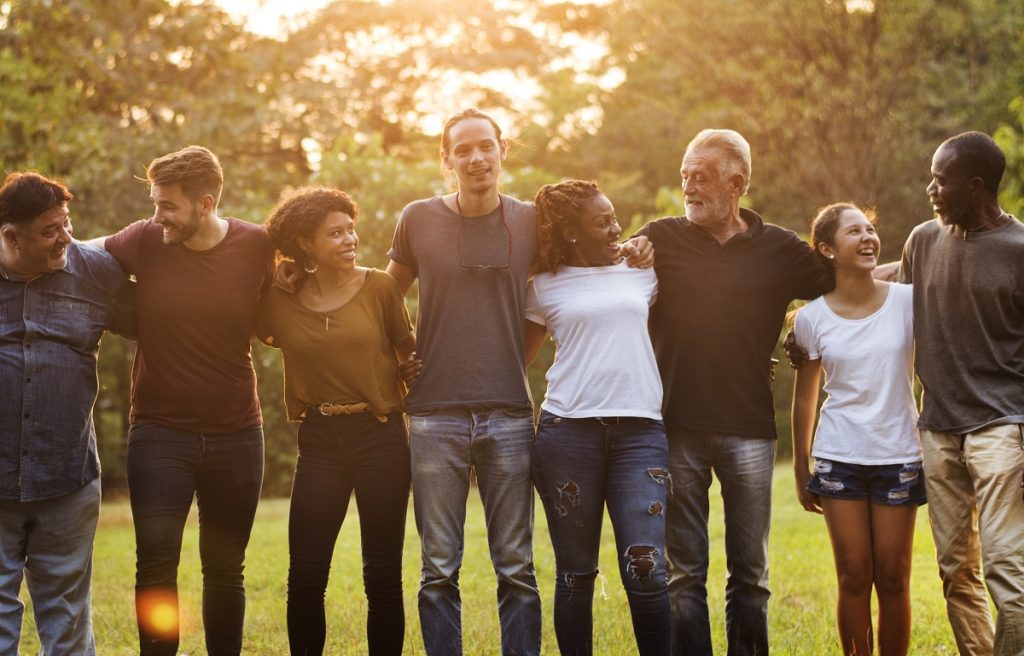- Foster open communication and promote inclusivity within the community.
- Encourage healthy conflict resolution.
- Foster supportive relationships and provide access to mental health services.
- Be aware of domestic violence and abuse and encourage victims to seek help.
- Promote mutual respect, understanding, and empathy to create a safe and healthy environment.
Building and maintaining healthy relationships is important for your overall well-being. Your relationships with friends, family, and community members can significantly impact your mental and physical health. Therefore, it’s essential to encourage healthy relationships in your community. Here are five tips on how to do so.
1. Foster Open Communication
Open communication is the cornerstone of any healthy relationship. Encourage your community members to communicate openly and honestly with each other. Encourage people to listen actively to what others are saying and to express their thoughts and feelings clearly. This can help prevent misunderstandings and promote mutual understanding and respect.
In addition, create spaces where people can come together to discuss difficult topics and share their experiences. This can help build empathy and understanding within the community and promote healthy relationships.
2. Promote Inclusivity

Promoting inclusivity within your community can help foster healthy relationships. Encourage people to respect and celebrate diversity, ensuring everyone feels welcome and valued. This can be done by organizing events and activities that unite people from different backgrounds and cultures, such as potlucks or cultural festivals.
It’s also essential to address any discriminatory behavior within the community and create safe spaces for people to report incidents of discrimination or prejudice.
3. Encourage Healthy Conflict Resolution
Conflict is a natural part of any relationship, and it’s essential to handle it healthily. Encourage people to resolve conflicts through open communication, empathy, and compromise. It’s important to listen to each other’s perspectives and work together to find a solution that works for everyone.
In addition, encourage people to seek help if they struggle to resolve a conflict independently. Mediators or counselors can provide an objective perspective and help facilitate healthy communication.
4. Foster Supportive Relationships
Encourage people to build supportive relationships within the community. This can be done by creating opportunities for people to connect and support each other, such as mentoring programs or support groups. Building supportive relationships can help people feel less isolated and provide a sense of belonging within the community.
Providing access to mental health services and other resources is also vital to help people in need. Providing these services within the community will make them accessible to everyone and make it easier for people to get the support they need. Additionally, creating spaces where people can openly discuss their feelings and experiences can be beneficial. Having conversations about mental health, and discussing the challenges that come with it, can help people feel more connected to one another and reduce stigma.
5. Be Wary of Domestic Violence and Abuse

Unfortunately, domestic violence and abuse are prevalent in many communities. It’s essential to be aware of the signs of domestic violence and abuse and to take action if you suspect someone is a victim.
Here are tips to help your community members with domestic violence and abuse:
Know the Signs of Domestic Violence and Abuse
Domestic violence and abuse can come in many forms, such as physical, emotional, or financial abuse. Look out for signs such as frequent arguments or quarrels with a partner, controlling behavior from a partner, someone constantly monitoring or isolating their partner, threats of harm or actual harm inflicted on a partner. If you notice any of these signs, immediately help the domestic violence/abuse victim.
Report Any Incidents
If you suspect someone is being abused by his/her partner, encourage them to report it to the local law enforcement agency or other appropriate authorities, such as social services departments. Victims need to speak up and seek help to ensure their safety and well-being. Let them know they have the right to be safe and free from violence/abuse.
Encourage Civil Restraining Orders
Encourage domestic violence and abuse victims to seek legal protection by filing a civil restraining order against their abuser. This can help keep the victim safe from their abuser and prevent further harm. A restraining order can also prevent the abuser from contacting or harassing the victim.
Help Connect Victims With Support Services
Help connect victims of domestic violence and abuse with local support services such as counseling, shelter, or other resources that can assist. These services are invaluable for helping victims feel safe and empowered while they work through their recovery process. Let them know that support is always available if they ever need it.
In Summary
By following these tips, you can help cultivate healthy relationships in your community and create an environment of mutual respect and understanding. This can have a positive impact on everyone’s health and well-being.





